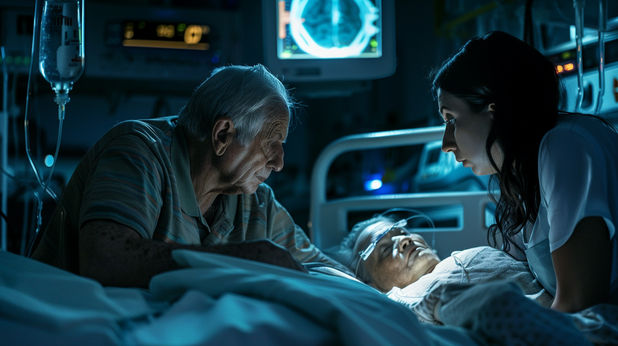It is no secret that America’s healthcare system is in a constant financial crisis.
Despite the fact that health insurance premiums are skyrocketing, doctors complain that their share of the money has been getting smaller and smaller, while the lion’s share goes to hospitals and facilities. This has led many doctors to come up with ways to expand into that lucrative marketplace.
Let me explain.
In Texas, we have a strange legal doctrine called the Corporate Practice of Medicine Act, which basically means that doctors cannot be hospital employees. Most people find this almost unbelievable, considering that they have been flooded by hospital billboard advertisements from Memorial Hermann, Houston Methodist, CHI, St. Luke’s, and other chains, all over Houston’s freeways, touting all the doctors who work at those hospitals.
But truth be told, when it comes to billing and payment, hospitals are paid separately than doctors. And many doctors have found a way to get in on both sides of that business, by opening their own hospitals, surgical centers, and procedure facilities.
Instead of using a hospital to perform heart testing and procedures, some cardiologists have formed groups that buy their own testing facility and equipment. That way, the individual doctor gets paid for performing the test, and the group, rather than a hospital, gets paid the profitable facility fees.
Similarly, physician-owned surgery centers and small surgical hospitals have sprouted up all over Texas like it is blue bonnet season.
Comparing doctor-owned hospitals and facilities to conventional hospitals
Doctor-owned hospitals are typically much smaller than normal hospitals and offer fewer services.
Most doctor-owned hospitals have emergency rooms, but see fewer patients on average.
On the other hand, doctor-owned hospitals also have operating rooms (OR), but perform more surgeries per OR than conventional hospitals. And of those surgeries, a substantially larger percentage is for outpatient procedures.
Common procedures done in physician-owned hospital emergency rooms include things like bariatric, spine, orthopedic, plastic, and cosmetic surgery, and even pain management.
From my experience as a Texas medical malpractice lawyers, I am not a fan of physician-owned hospitals. Many are volume businesses that run patients through the door for outpatient procedures as quickly as possible, and are woefully unequipped and unprepared when something goes wrong during surgery.
Just recently, I met with a new client who started bleeding into his bladder after a nurse did not insert a Foley catheter correctly. This was done at a Houston-area surgical center before a scheduled surgery on a vertebral disc in this patient’s neck. The surgeon chose to proceed with the surgery anyway. When the operation was over, the surgical center could not handle the bleeding, so the patient went by ambulance to a regular hospital.
Homemade devices?
Just this week, I read a story about allegations against another North Texas spine doctor, Collin County orthopedic surgeon Dr. Stephen Courtney.
I say “another” because I am well aware of surgical practices in that part of Texas, having represented a client against convicted former Plano neurosurgeon Dr. Christopher Duntsch, who practiced at Baylor Regional Medical Center, in Plano.
Dr. Courtney co-founded a company, Eminent Spine, which manufacturers cervical, thoracic, and lumbar surgical devices. The company uses the slogan “Bad to the Bone” and sells spinal fusion devices, pedicle screw, plates, and other parts with names include Copperhead, King Cobra, Cottonmouth, Fang Plate, Texas Python, Texas Sidewinder, Diamond Back, Boa Constrictor, Rattlesnake, and the list goes on.
Multiple lawsuits and Texas Medical Board complaints contain allegations that Dr. Courtney is improperly and unnecessarily implanting the devices of his own company, Eminent Spine, into patients’ spines.
According to WFAA, all four of the patients who sued Dr. Courtney had their surgeries done at Baylor Scott & White Medical Center, in Frisco, with Dr. Courtney’s implanting his own devices. Since those surgeries, Baylor Frisco changed its policies and no longer allows surgeons to use their own implants on patients.
Undeterred, Dr. Courtney now opened his own hospital Eminent Medical Center, in Richardson, Texas.
Staying safe
If you are scheduling a surgery, I recommend that you have a thorough conversation with your surgeon about the facility that will be used before making a decision on how to proceed. Ask questions like these. Is it a hospital? Is it a surgical center? Who owns the facility? Is it equipped to handle emergencies, or would you have to be transferred to a hospital in that event?
While several major hospital systems across the country do not allow surgeons to perform operations using the surgeons’ own equipment in their hospitals, it is not a uniform rule. If equipment is going to be implanted into your body, ask questions like the name of the device, who manufacturers it, how long it has been in use, and if there have been any defects or problems with it.
Surgical malpractice lawyers here to help
If you or someone you care for has been injured in an operating room, or perhaps by a suspicious medical device, call 281-580-8800 for a free consultation with an experienced Texas medical malpractice lawyer at Painter Law Firm.





